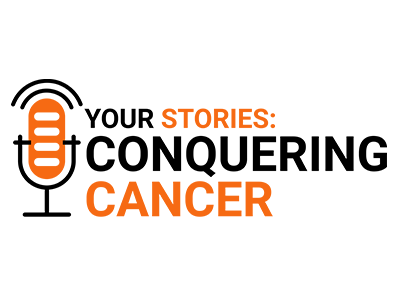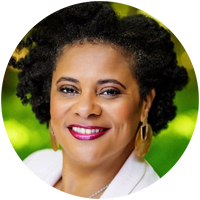
Conquer Cancer, the ASCO Foundation, developed the podcast series Your Stories: Conquering Cancer to showcase unscripted conversations between patients, doctors, and the family and friends who conquer cancer with them.
In the episode "Implementing Change," Karen Winkfield, MD, PhD, 2022 Cancer.Net Associate Editor of Radiation Oncology & Health Equity and executive director of the Meharry-Vanderbilt Alliance, speaks with host Don Dizon, MD, FACP, FASCO, about the past and present impact of structural racism in health care and how these barriers affect Black people with cancer. Dr. Winkfield unpacks why cancer risks are higher and survival rates are lower for Black people and addresses the health disparities facing people from disenfranchised communities. She also shares solutions for improving health equity, including how and where systemic change is on the rise. She encourages people to both consider the broad, layered societal factors affecting health equity and to think about what can be done at the local and individual level to affect change.
This is a conversation between 2 advocates about reckoning with the racism prevalent in modern medicine and the importance of advancing equity for every person with cancer.
The challenges Black people face in health care
Black people have the greatest risk of dying from cancer compared to people from other racial and ethnic groups. Dr. Winkfield points to differences in the social determinants of health that lead to gaps in care and heightened disparities facing Black populations.
“We've got to be clear," says Dr. Winkfield. "There are barriers built into the system that prevent Black Americans from accessing health care at the point where they potentially could have improved outcomes."
Centuries of racism in medicine have resulted in modern challenges for Black people with cancer, such as racist microaggressions from providers, financial and transportation barriers, and limited representation in clinical research, among other factors. These hurdles can make it especially difficult for Black people to access the preventive care necessary to find and treat cancer early.

“We've got to be clear. There are barriers built into the system that prevent Black Americans from accessing health care at the point where they potentially could have improved outcomes." – Karen Winkfield, MD, PhD, FASCO, board-certified radiation oncologist, Executive Director of the Meharry-Vanderbilt Alliance, and 2022 Cancer.Net Associate Editor for Radiation Oncology and Health Equity
Elevating health equity through clinical trials and cultural humility
Although acknowledging the problems can represent progress, Dr. Winkfield says diversity training and mission statements cannot erase the biases that people of color face when seeking care, including in cancer clinical trials. Many people have fears of participating in clinical trials based on past harmful experiences with the medical community. “There are individual communities that worry about being guinea pigs,” says Dr. Winkfield. “So there is some education that needs to be done at the community level.” Or, someone may not be offered participation in a clinical trial because of assumptions their provider makes based on their race, ethnicity, or language.
And, with the barriers that people of color face, Dr. Winkfield says it’s especially important for providers to become more patient-centered and work to eliminate their biases, including in clinical trials. “How can we become more patient-centered in the way we design clinical trials, which includes thinking about eligibility, thinking about access?” she asks.
Dr. Winkfield also challenges everyone, especially providers, to practice and embrace “cultural humility.” This means working to better understand the unique circumstances and perspectives of patients and the communities in which they live. Dr. Winkfield describes cultural humility as “saying to this person sitting in front of you, ‘I may not know you that well, but I'm interested. Help me understand your perspective. Help me understand the things that you value.’”
